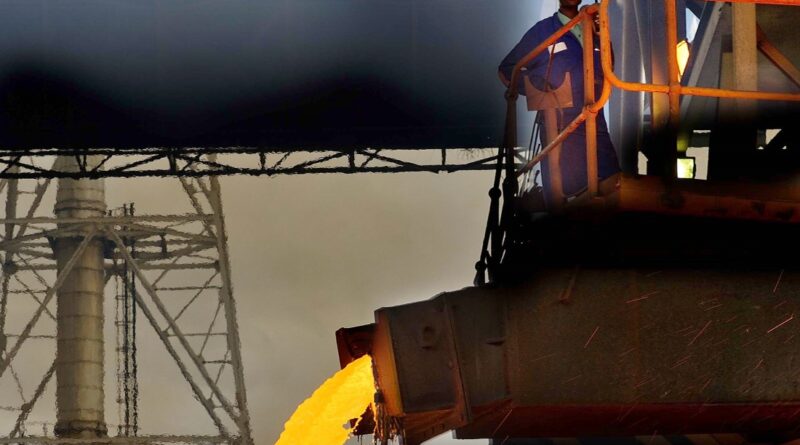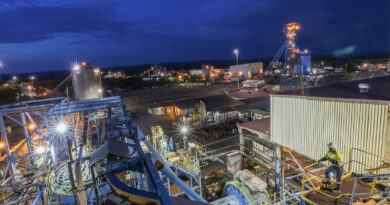Implats to restore operational momentum at Rustenburg and Canada
For the six months ended 31 December 2021, it was a challenging period for Implats. The financial consequences of a series of operational challenges were compounded by softening rand PGM pricing, which came off record highs reached in late FY2021.
Lower reported volumes at Impala Rustenburg and Impala Canada offset improved throughput at Marula and concentrate production at managed operations decreased by 4% to 1.62 million 6E ounces. 6E concentrate production from JV operations at Two Rivers and Mimosa declined by 4% to 271 000 ounces. Third-party 6E receipts of 188 000 ounces were 4% lower and in aggregate, gross 6E concentrate volumes produced declined by 4% to 1.62 million ounces.
Group refined production of 1.62 million 6E ounces, including saleable production from Impala Canada, declined by 5%. Refined volumes in the previous comparable period benefitted from increased availability of processing capacity due to the timing of annual maintenance. Processing assets performed well, with all previously identified excess 6E concentrate stocks treated during the period.
Total cash operating costs increased by 12%, while unit cost inflation was compounded by lower production volumes and, on a stock-adjusted basis, increased by 17% to R16 756 per 6E ounce (H1 FY2021: R14 292 per ounce).
Capital expenditure at managed operations rose by 34% to R3.6 billion (H1 FY2021: R2.7 billion) as investment accelerated across the mining and processing operations at Impala Rustenburg following Covid-19-related delays in the prior comparable period, and several Group replacement and growth projects were initiated during the period.
The proposed acquisition of all outstanding Royal Bafokeng Platinum (RBPlat) shares will provide compelling strategic, operational, and financial benefits for Implats and RBPlat stakeholders and local communities. It will secure a Western Limb production base to enhance and entrench the region’s position as the most significant source of global primary PGM production, and will deliver tangible socio-economic benefits for the region, its communities, and South Africa as a whole, including employment security and sustained indirect benefits for the greater-Rustenburg region.
While rand PGM pricing retraced from recent highs, and sales volumes declined as the Group faced a series of operational challenges, Implats continued to deliver robust earnings and free cash flow generation. The Group maintained a strong and flexible balance sheet while pursuing value-accretive organic and acquisitive growth, and sustaining its commitment to shareholder returns.
Revenue of R55.6 billion decreased by 4%, cost of sales of R37.7 billion increased by 5% and Implats delivered gross profit of R17.9 billion. EBITDA of R24.0 billion was achieved at an EBITDA margin of 43%.
Basic earnings declined to R13.8 billion while headline earnings of R13.8 billion were 4% and 9% lower, respectively. The Group generated R15.1 billion in free cash flow, after capital investment of R3.5 billion at its managed operations and ended the period with net cash after debt of R18.5 billion and liquidity headroom of R26.5 billion.
PROSPECTS AND OUTLOOK
All three major PGM markets – platinum, palladium, and rhodium – recorded fundamental surpluses in 2021. The combination of accelerated destocking of producer inventories, coupled with the shortfall in expected auto demand due to the worsening chip shortage, resulted in a year characterised by extreme volatility, with tight physical markets and price support in the first half of the calendar year countered by increased primary and secondary refined supplies and erratic auto purchases in the latter months.
PGM pricing improved in early 2022. Auto production supply chain constraints eased, supporting increased physical demand as rising geopolitical tensions and well-signalled processing maintenance across the sector reaffirmed persistent supply-side constraints.
The confluence of these factors is likely to result in a tightening of both palladium and rhodium markets relative to the over-supply experienced in H1 FY2022. Platinum remains vulnerable to changes in broader precious metal investor sentiment in the short to medium term.
The Group remains confident in its assertion of enduring, elevated strength in PGMs, and the strategic rationale of accelerated investment to secure the long-term sustainability and competitiveness of its diverse asset suite, including industry-leading integrated processing assets.
The operational focus in the remainder of FY2022 will be on restoring operational momentum at Impala Rustenburg and Impala Canada, progressing delivery across the project suite currently underway, and advancing those projects approaching approval at the broader Group level.
Production volumes will be negatively impacted by the accumulation of inventory and Group 6E refined production in FY2022 is estimated to be between 3.10 and 3.20 million ounces. Group operating costs are forecast to be between R16 800 and R17 400 per 6E ounce on a stock-adjusted basis. Group capital expenditure is forecast to be between R8.5 and R9.5 billion as project approvals at Zimplats result in upward revisions to previous guidance. This revised guidance assumes exchange rates of R15.20/US$ and C$1.26/US$, respectively.




